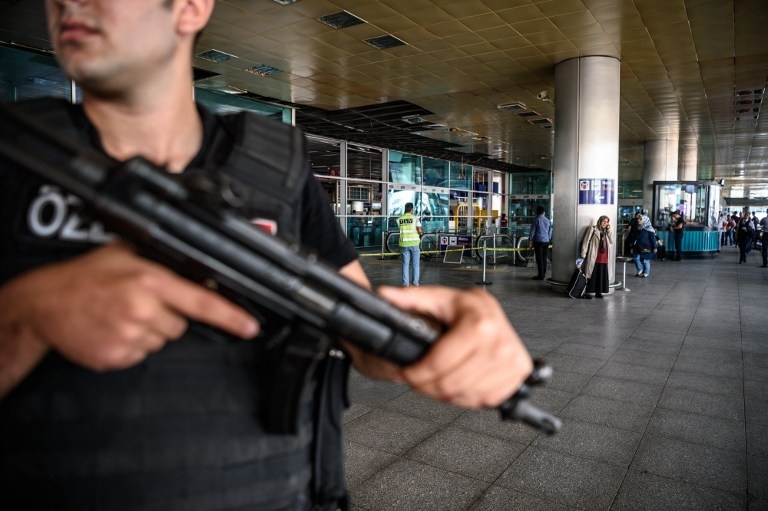Turkey arrests foreigners in crackdown on Islamic State

Turkish authorities have intensified a crackdown on the Islamic State group, detaining 11 suspected foreign fighters overnight on Friday.
The suspects are believed to have planned the deadly attack on Istanbul airport earlier this week. The death toll from the attack has now risen to 44, including 19 foreigners, after one more person died overnight.
Turkish media reported on Friday that the suicide bombers who perpetrated the deadly attacks had planned to take dozens of passengers hostage.
The pro-Government Sabah newspaper reported that the attackers scouted the scene and planned to take dozens of passengers hostage inside the airport before carrying out the massacre. But they began the assault early after attracting suspicion, Sabah said.
Authorities have now arrested 24 suspects in connection with the airport attack that has not been claimed by IS, but has been widely blamed on the group.
The three suicide bombers, who were killed in the attack, are now also known to have been a Russian, an Uzbek and a Kyrgyz national. The Russian attacker was of Dagestani origin.
The ringleader of the attack is believed to Akhmed Chatayev, a Chechen, shining a spotlight on Russia’s controversial actions in Chechnya that many believe have helped to inspire a generation of militants.
Since the first Russian-Chechen war in the mid-1990s, Istanbul has been home to thousands of Chechen refugees, with reports suggesting that Chechen fighters have used the Turkish metropolis as a base to recruit fighters and to recuperate from injuries after being wounded in Syria.
Thousands of foreign fighters from Europe, Asia and North Africa have flocked to Syria, Iraq and Libya to join the Islamic State group. Turkey was initially accused of not doing enough to stop the influx of fighters, but since IS began launching attacks on Turkish soil last year, Ankara says it has stepped up security and worked to lock down its border.
Tunisians have made up the single biggest group of foreign IS arrivals. Earlier this week, it emerged that one of the foreign nationals killed in the Tuesday attack was the father of an IS fighter who had flown to Istanbul to try to have his son released from detention.
Turkey has also been plagued by ongoing Kurdish violence, with Kurdish militants staging a string of attacks and Turkey continuing a bloody crackdown in the southeast and also in northern Iraq where the Kurdish Workers’ Party (PKK) has traditionally had bases and training camps.
On Friday, Turkish authorities killed the alleged mastermind of a deadly suicide attack in Ankara that killed at least 28 people in February.
Mehmet Sirin Kaya was shot in a counter-terrorism operations in Lice, in the Diyarbakir province, officials said.
Despite the dangers, however, many Turks have vowed to fight to continue their daily lives and routines.
Istanbul airport is now back up and running.
"I don't know how, but only hours after the explosions, the deaths and the injuries, flights were able to run normally again," one tourism executive at the airport told AFP.
The pro-Government Sabah newspaper reported that the attackers scouted the scene and planned to take dozens of passengers hostage inside the airport before carrying out the massacre. But they began the assault early after attracting suspicion, Sabah said.
Authorities have now arrested 24 suspects in connection with the airport attack that has not been claimed by IS, but has been widely blamed on the group.
Middle East Eye propose une couverture et une analyse indépendantes et incomparables du Moyen-Orient, de l’Afrique du Nord et d’autres régions du monde. Pour en savoir plus sur la reprise de ce contenu et les frais qui s’appliquent, veuillez remplir ce formulaire [en anglais]. Pour en savoir plus sur MEE, cliquez ici [en anglais].




